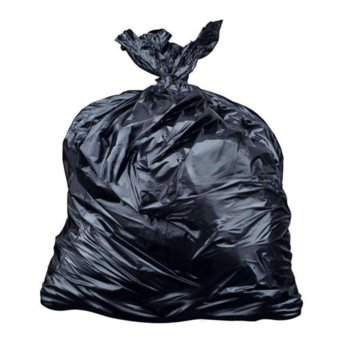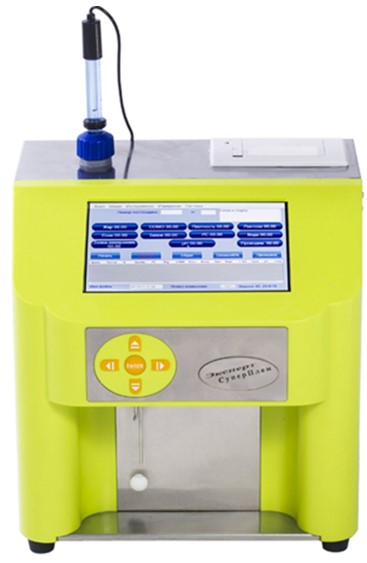The range of washing powders in stores decreased by a third
In March-April 2022, the assortment of household chemicals and personal care products was sharply reduced in stores, follows from the results of the retail audit of the NielsenIQ research company provided by RBC. According to her calculations, for six weeks - from March 21 to May 1, 2022 - in the largest retail chains, the number of commodity items in these non-food categories decreased by 23% compared to the same period last year.
Commodity items, or SKU (from the English stock keeping unit - “stock keeping unit”), take into account various variations of the same product. Under one brand, NielsenIQ explains, several different headings can be sold, which differ, for example, in terms of packaging volume: for example, “Holy Spring” water in bottles of 0.33 liters and 1 liter are different headings.
The most noticeable narrowing of the assortment is observed in washing powders: the number of commodity items in March-April 2022 decreased by almost 33% compared to the same period last year. Among the leaders in reducing the range of non-food products also included personal hygiene products, dishwashing detergents, fabric and hair conditioners, face products, shampoos and cleaning products.
In 155 categories, not only the assortment decreased, but also sales in physical terms, NielsenIQ notes. The decrease in the assortment and the decrease in sales are interrelated factors, but they have a different nature and occur in parallel, says Konstantin Loktev, director of retail at the Russian office of NielsenIQ. There are enough categories on the market where the assortment has decreased, but at the same time there is no decrease in sales - for example, these are groceries, goods for children and soft drinks.
There are also 12 categories where the assortment in March-April, on the contrary, expanded: the leaders here were energy drinks, alcoholic cocktails and gin.
Russians stopped buying buckwheat and switched to gin
Why there are fewer household chemicals in stores
Loktev names several reasons for the narrowing of the range. First, a number of suppliers can no longer supply their products; secondly, some suppliers have reduced the range due to difficulties with raw materials, ingredients and components. Finally, the reduction in the assortment was also provoked by the buyers themselves, who in March stocked up with long-term storage goods, which led to the absence of a number of commodity items on the shelves.
After the start of a military special operation in Ukraine, Western companies began to massively suspend operations on the Russian market, among them the largest international manufacturers of consumer goods. The basic products of international brands were mainly produced in Russia, but certain products, for example, limited-edition lines, were supplied from abroad, Mikhail Burmistrov, general director of the INFOLine-Analytics agency, points out.
From Adobe to Visa: which companies have suspended work in Russia
Which companies have reduced the range of household chemicals in Russia
Back in early March, the American company Procter & Gamble promised to significantly reduce its range of products in Russia . The company that makes Tide, Ariel and Myth laundry detergents, Always, Naturella and Discreet pads, Pampers diapers, Tampax tampons, Lenor fabric softeners, Head & Shoulders and Pantene hair products, and Mr. Proper, said it would only sell essential health and hygiene products in Russia.
The Unilever concern announced in March that it would suspend imports of products to Russia and exports from the country, but will continue to supply Russians with the necessary hygiene products and food products that are produced at the company's Russian factories (among its brands are Cif and Domestos household chemicals, Rexona, Dove hygiene products). , Ahe, Camay, Clear, as well as "Clean Line", "Forest Balsam", "Velvet Handles", "Black Pearl").
At the end of March, the American Johnson & Johnson announced that it would suspend the supply of personal care products to Russia. The company makes OB tampons, Carefree pads, Le Petit Marseillais shower gels, Listerine mouthwashes, Johnson's Baby and Neutrogena branded products, and Clean & Clear facials.
In April, the German concern Henkel announced its withdrawal from Russia . Among its brands are Pemolux cleaning products, Persil, Pemos, Losk, Laska, Vernel laundry products, Fa shower gels, Shamtu, Schwarzkopf, Syoss hair products.
Britain ’s Reckitt, maker of Durex condoms, Vanish and Cillit Bang cleaning products, Calgon washing machine products, and Clearasil skincare , also announced the transfer of the Russian business to “third parties or local employees” the same month .
Glue manufacturer Moment announced its withdrawal from Russia Business
“We have decided to suspend the supply of consumer goods - personal care products - for sale in Russia,” recalled a representative of Johnson & Johnson in Russia. “Due to the reduction in imports of raw materials and packaging, businesses will face a number of operational difficulties, and consumers may see certain changes in our assortment in the future, while product quality will not change,” Unilever’s representative in Russia responded to a request from RBC, refraining from more specific explanations. A Henkel spokesman insists that "during the period of high demand in March and April" the company did not reduce the range of its products.
Manufacturers do announce a reduction in the range, but to date, a reduction in the lines of household chemicals has not yet been observed, assures Vadim Zhurov, commercial director of the Siberian retail chains Baton and Krasny Yar. The range of laundry products, feminine hygiene items, personal care products has narrowed by 10-15%, the top management of one of the largest Russian chains objects. The reduction in the range is also confirmed by the representative of the Lenta chain: according to him, this is due to "the restructuring of logistics and the revision of the brands' development strategies."
Stores began to cancel discounts and promotions Business
Now there is a deferred demand effect, after a large-scale March purchase, consumers spend what they bought earlier, explains Oleg Ponomarev, co-owner of the Semya and Spar Kaliningrad chains. Therefore, according to him, retailers, following consumer demand, slightly, but change the assortment, replacing niche and more expensive brands with the mid-price and low segment.
Since the end of February, the Slata retail chain has seen a reduction in the range of goods in the category “household chemicals and care products” by an average of 15%, states Deputy Commercial Director Artur Lachinov. The optimization was due to a significant increase in prices for imported products and reduction in marketing budgets. For example, in the range of washing powders, the reduction occurred due to the withdrawal of the Persil and Pemos brands by Henkel and the narrowing of the range of liquid laundry detergents. After the rise in price of personal hygiene products in Slata, the assortment of diapers in the premium segment also decreased, and there is a shortage of tampons in production, since there is no raw material, Lachinov notes. Where possible, the network switched to the supply of domestically produced goods, RBC's interlocutor adds.
The Ministry of Industry and Trade estimated stocks of diapers and women's pads in stores Business
The reduction in the number of commodity items does not mean a reduction in the number of brands on the market, emphasizes Alexei Popovichev, executive director of the Rusbrand association. Manufacturers, who have faced logistical and packaging challenges due to sanctions, are looking to streamline their portfolio to retain key brands and are removing additional SKUs that have been extensions of that portfolio. “The conditional Tide powder remained, but they switched from a small cardboard package to a large plastic bag, which has become in demand among consumers, since it is more cost-effective,” the expert points out. For a consumer who is accustomed to a small package format, this “may cause some inconvenience,” Popovichev admits, but, on the other hand, “he has not lost the opportunity to consume products under this brand.”
Now the assortment of non-food products with a long shelf life is gradually being restored - in order for the shelf to “rebuild”, time must pass, but it is unlikely to be empty, because either suppliers will find ways to rebuild logistics and replenish the assortment, or retail chains themselves will find alternative positions, Loktev reassures.
The Ministry of Industry and Trade did not comment on the NielsenIQ data, but recalled that since the beginning of May, parallel imports of a number of commodity items have been allowed in Russia. Competing with supplies from unofficial importers "will allow for a broader supply of consumer goods," the ministry said.
Dietary supplements and vitamins in EAPTEKE. Fast shipping. Medicines at competitive prices. Discounts and promotions. Vitamins for all occasions. Order on the site!




























































